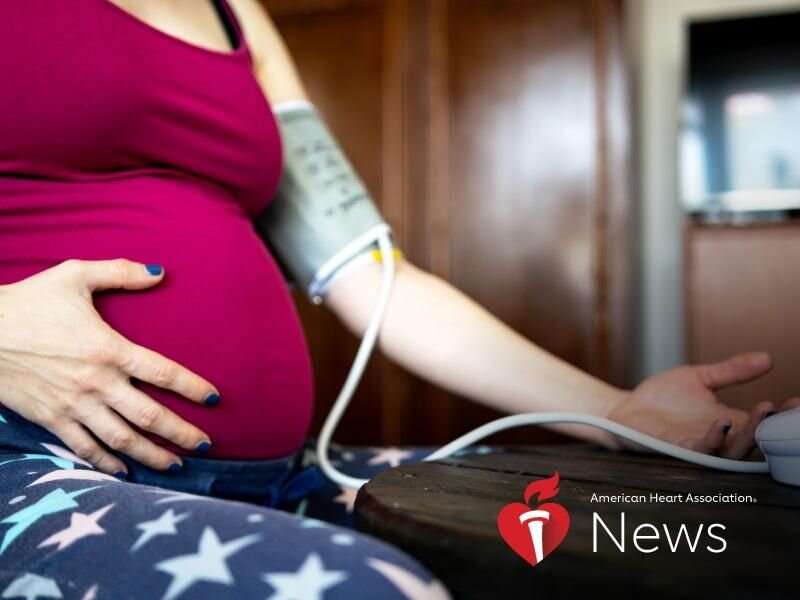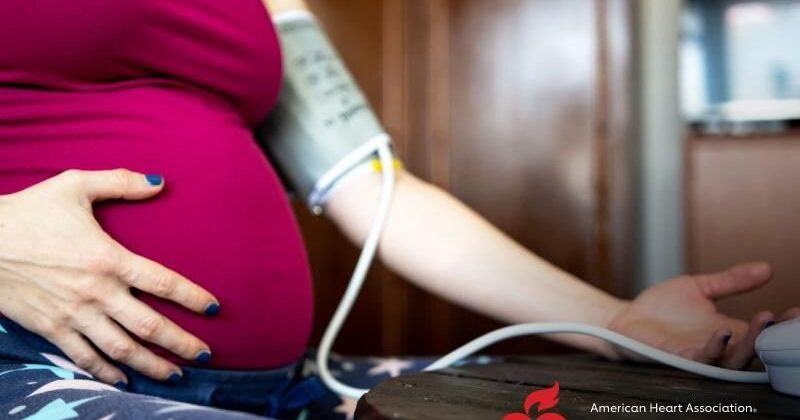
Women who have pregnancy-related health problems face an increased risk for having a stroke much earlier in life than their peers with uncomplicated pregnancies, a risk that climbs with each complicated pregnancy, new research suggests.
The findings, which will be presented Feb. 8 at the American Stroke Association’s International Stroke Conference in Dallas, show women with two or more complicated pregnancies had double the risk for stroke before age 45, compared to women without serious complications.
“That’s really young,” said lead study author Dr. Eliza Miller, an assistant professor of neurology at Columbia University in New York City. “These women are still in their prime working years. They may be taking care of their parents as well as children. Having even a small stroke is going to have a major impact on their lives.”
The findings are considered preliminary until full results are published in a peer-reviewed journal.
Miller was inspired to do the study after seeing women in her practice who were having strokes in their 40s and 50s. Many of the women had a history of poor pregnancy outcomes and issues with high blood pressure. “I thought they were too young to be having these types of strokes,” Miller said. She wondered if there was something about hypertension-related pregnancy outcomes that was accelerating the women’s stroke risk.
Prior research has established a link between adverse pregnancy outcomes, or APOs, such as preeclampsia, and a woman’s future heart disease and stroke risk. But there was little data showing how preeclampsia and other pregnancy-related complications might affect when a woman had a first stroke.
In the study, researchers used data from the Finnish nationwide health registry for 130,764 women who gave birth after 1969, when the birth registry was established. The analysis included 285,545 births. Researchers defined APOs as any pregnancy affected by gestational hypertension, preeclampsia, eclampsia, having the placenta separate from the wall of the uterus or if babies were born before reaching full term or at low birthweights.
Overall, nearly 15% of the women (19,442) had one adverse pregnancy outcome and nearly 3% (3,639) had multiple APOs. Compared to women whose pregnancies were free of complications, women who had APOs had a higher proportion of obesity, hypertension, high cholesterol, heart disease and migraines.
Strokes occurred in 5.4% (7,006) of the women in the study. Strokes were counted if they occurred more than a year after the baby was born. The study included larger strokes caused by blood clots and bleeding in the brain as well as smaller strokes known as transient ischemic attacks, or TIAs.
Among women with no history of APOs, the median age for a first stroke was 59 years. Those with one APO had a first stroke at a median age of 55. Women who had multiple complicated pregnancies had strokes at a median age of 51. Those with multiple poor-outcome pregnancies had twice the risk of having a stroke before age 45, compared to women with no APOs.
Miller said health care professionals who oversee a woman’s pregnancy should immediately refer those who have complications—especially recurrent complications—for stroke prevention.
“We can actually change this,” she said. “We can identify people who had recurrent adverse pregnancy outcomes as a group of very high-risk people. That group of people falls into a group that should be given aggressive primary prevention.”
Ideally, stroke prevention should begin even earlier—before a woman becomes pregnant, said Dr. Nisha Parikh, an associate professor of clinical medicine at the University of California, San Francisco.
“We’re starting to recognize that doing cardiovascular prevention in the context of a woman’s life course is important further and further upstream,” she said. “Doing the prevention as early as possible is important.”
Parikh, who was not involved in the study, chaired the writing committee for a 2021 American Heart Association scientific statement on adverse pregnancy outcomes and cardiovascular disease. The statement highlighted the need for greater prevention efforts, such as adopting a heart-healthy diet and increasing physical activity, for women with a history of APOs, and it encouraged addressing these risks during routine pre-pregnancy care.
She called the new study powerful because it looked at the added risk of having multiple pregnancies with poor outcomes. “Most women have recurrent pregnancies,” Parikh said. “And if you’ve had one adverse pregnancy outcome, you’re at high risk for having another.”
For women known to be high risk, there are steps to reduce those risks, Miller said. For example, taking low-dose aspirin can help prevent preeclampsia, a hypertension-related complication that also increases a woman’s risk for dying during pregnancy.
Health care professionals can also encourage women who have had APOs to take other measures, she said, such as taking statins to lower cholesterol levels, quitting smoking or improving their sleep habits. “There’s a lot people can do to reduce stroke risk on an individual level.”
Parikh said health care professionals need to routinely ask women about their pregnancy histories to identify those who might benefit from earlier stroke prevention efforts.
“It is easy enough to ask about adverse pregnancy outcomes, but as clinicians we tend not to ask these questions,” Parikh said. “Everyone should be asking. This is history taking. It costs nothing. It just takes careful attention.”
Copyright © 2023 HealthDay. All rights reserved.
Source: Read Full Article
